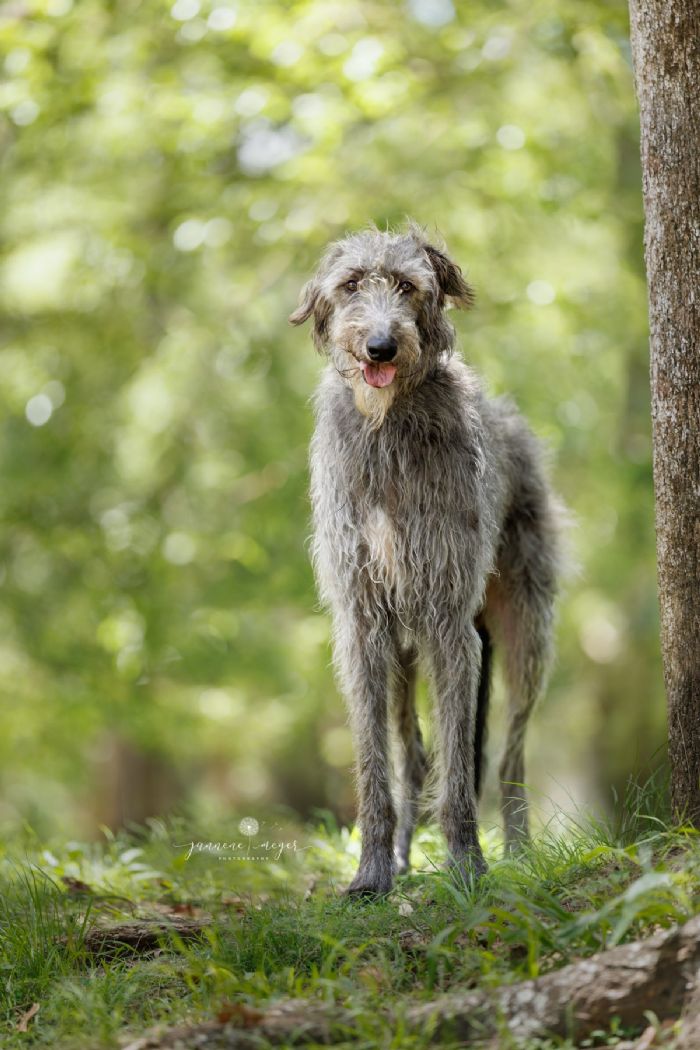Some thoughts on training Deerhounds
'Walter' Eilrig Follow They Not Dare - photograph courtesy of Jannene Meyer Jannenemeyerphotography.com © Jannene Meyer Photography

Training can be a contentious issue. If you are new to Deerhounds, be guided by your pup’s breeder. A caution when attending puppy schools or training sessions; anyone can put out a shingle and call themselves a trainer. Reward training and supposed ‘positive training’, so successful with other breeds can be hit or miss with some Deerhounds.
Remember what the Deerhound was bred to do! Like other sighthounds he has been bred for excellence in the pursuit of game and to work with minimal instruction from his master. Expecting him to behave like a Border Collie, Labrador or German Shepherd is unrealistic as those dogs were selected and bred for different purposes and respond to commands more readily. The Deerhound instincts differ from most other breeds and to expect him to behave otherwise is unfair. If you expect your dog to behave as an automaton, maybe a different breed would better suit.
Deerhounds crave praise and acknowledgement, and should not be treated harshly as they are quite sensitive, and training should focus on patience and consistency. They are very intelligent and quick to learn but have a ‘what’s in it for me’ outlook and can be quite stubborn and very determined.
Deerhounds want to please their masters and are reasonably obedient, except when in hunting mode or roused by potential quarry, when the temptation to pursue is overwhelming, and recall is difficult if not impossible. Deerhounds have an outgoing and friendly nature and tend to greet visitors and strangers as long-lost friends, and their exuberance is not always received well. Deerhounds are not very road savvy. Consequently, free exercising is best done in a securely fenced area, otherwise exercising on a leash is prudent.
Deerhounds mature relatively slowly and are quite ‘puppyish’ at 12 months even though looking quite mature. Basic lead and recall training can begin as soon as your puppy arrives but be gentle and little and often is key, allowing the pup to gradually become accustomed to the lead. Socialising with humans and other dogs should commence as soon as puppy booster vaccinations are completed.
Occasionally some pups and young dogs may experience bouts of fearfulness, and training at these stages needs to be gentle and encouraging, or there will be a risk of imprinting a nervous and fearful outlook.
Deerhounds enjoy being indoors with their masters and ‘crate training’ is an effective method of house training and a relatively simple process.
Talk to reputable breeders and owners of Deerhounds about training your pup as generic dog training may cause as many problems as it solves.
